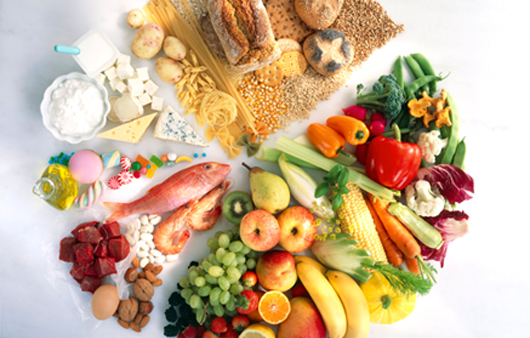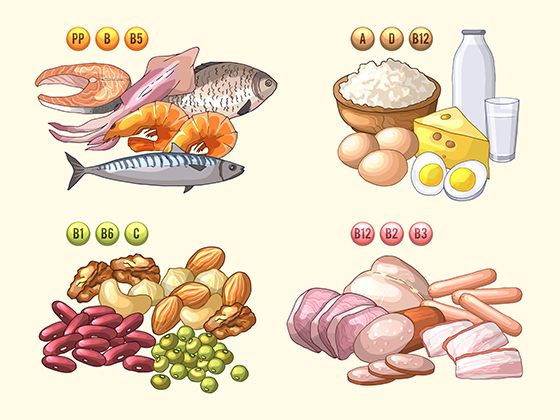Essential Foods and Supplements for Postpartum Recovery
Essential Foods and Supplements for Postpartum Recovery
Introduction
The postpartum period, often called the "fourth trimester," is a crucial time for mothers to focus on recovery and replenishing their bodies. Proper nutrition and the right supplements can help accelerate healing, improve energy levels, and support emotional well-being. In this blog, we’ll explore the best foods and supplements to include in your postpartum diet, ensuring a healthy recovery for new mothers.
1. Why Nutrition Is Important After Childbirth
After childbirth, the body undergoes significant changes and healing processes. Proper nutrition is essential for:
- Tissue Repair: Supporting recovery from delivery (vaginal or C-section).
- Hormonal Balance: Stabilizing mood and energy levels.
- Breastfeeding: Providing the nutrients needed for breast milk production.
- Energy Levels: Combating postpartum fatigue and replenishing depleted nutrient stores.
2. Top Foods for Postpartum Recovery
Incorporating nutrient-rich foods into your postpartum diet is essential for optimal recovery. Here are the top foods to prioritize:
A. Protein-Rich Foods
- Why It’s Important: Protein is essential for tissue repair and muscle recovery.
- Best Choices:
- Lean meats (chicken, turkey, beef)
- Fish (salmon, mackerel)
- Eggs
- Plant-based options like tofu, lentils, and beans
B. Omega-3 Fatty Acids
- Why It’s Important: Omega-3s, especially DHA, support brain health, reduce inflammation, and may help prevent postpartum depression.
- Best Choices:
- Fatty fish (salmon, sardines)
- Chia seeds
- Flaxseeds
- Walnuts
C. Iron-Rich Foods
- Why It’s Important: Iron replenishes red blood cells lost during delivery and combats fatigue.
- Best Choices:
- Red meat
- Spinach
- Lentils
- Iron-fortified cereals
D. Leafy Greens
- Why It’s Important: Packed with vitamins A, C, and K, as well as folate, leafy greens support healing and milk production.
- Best Choices:
- Kale
- Spinach
- Swiss chard
- Arugula
E. Whole Grains
- Why It’s Important: Provide long-lasting energy and are rich in fiber, which aids digestion.
- Best Choices:
- Brown rice
- Quinoa
- Oats
- Whole-grain bread
F. Calcium-Rich Foods
- Why It’s Important: Calcium is essential for bone health and is especially important for breastfeeding mothers.
- Best Choices:
- Dairy products (milk, yogurt, cheese)
- Almonds
- Sesame seeds
- Calcium-fortified plant-based milk
G. Hydrating Foods
- Why It’s Important: Staying hydrated is crucial for overall health and milk production.
- Best Choices:
- Watermelon
- Cucumber
- Soups and broths
- Coconut water
3. Recommended Supplements for Postpartum Recovery
In addition to a nutrient-rich diet, certain supplements can fill nutritional gaps and support recovery.
A. Multivitamins
- Why It’s Important: A good postpartum multivitamin ensures you’re getting essential nutrients like iron, calcium, and vitamin D.
- Recommendation: Look for a high-quality multivitamin formulated for postpartum needs.
B. Omega-3 (DHA/EPA)
- Why It’s Important: Supports brain health, reduces inflammation, and promotes emotional well-being.
- Recommendation: Fish oil or algae-based DHA supplements.
C. Vitamin D
- Why It’s Important: Essential for bone health, immune function, and mood regulation.
- Recommendation: Vitamin D3 supplements (consult your doctor for dosage).
D. Iron
- Why It’s Important: Replenishes iron lost during delivery and helps combat fatigue.
- Recommendation: Iron supplements, especially for mothers with postpartum anemia (take with vitamin C for better absorption).
E. Probiotics
- Why It’s Important: Supports gut health, digestion, and immune function.
- Recommendation: Probiotic capsules or fermented foods like yogurt and kimchi.
F. Calcium and Magnesium
- Why It’s Important: Calcium supports bone health, while magnesium aids in muscle relaxation and reduces stress.
- Recommendation: Calcium-magnesium combination supplements.
G. B-Complex Vitamins
- Why It’s Important: B vitamins help with energy production and mood stabilization.
- Recommendation: A high-quality B-complex supplement.
4. Tips for Incorporating These Foods and Supplements
- Plan Balanced Meals:
- Combine protein, healthy fats, and complex carbohydrates in every meal.
- Prepare Snacks:
- Keep nutrient-dense snacks like nuts, seeds, and yogurt on hand for quick energy boosts.
- Stay Hydrated:
- Drink plenty of water throughout the day, especially if breastfeeding.
- Consult a Healthcare Provider:
- Before starting any supplements, consult your doctor to ensure they are safe and meet your individual needs.
5. Foods to Avoid Postpartum
While focusing on nutrient-rich foods, it’s also essential to avoid certain items:
- Caffeine: Excessive amounts can interfere with sleep and irritate your baby if breastfeeding.
- Alcohol: Avoid or limit alcohol, especially if breastfeeding.
- Processed Foods: High in sugar and unhealthy fats, which can increase inflammation and fatigue.
- Spicy Foods: Can cause discomfort in some mothers or affect breastfeeding infants.
6. Conclusion
Proper nutrition and supplementation are critical for postpartum recovery. By incorporating nutrient-rich foods like leafy greens, fatty fish, and whole grains, along with targeted supplements like omega-3s and iron, you can support your body’s healing process and improve overall well-being. Remember, every mother’s needs are unique, so consult your healthcare provider for personalized advice.
Call to Action
Are you navigating postpartum recovery or looking for tips to enhance your well-being? Share your thoughts or questions in the comments below! Follow this blog for more insights into maternal health and wellness.




Comments